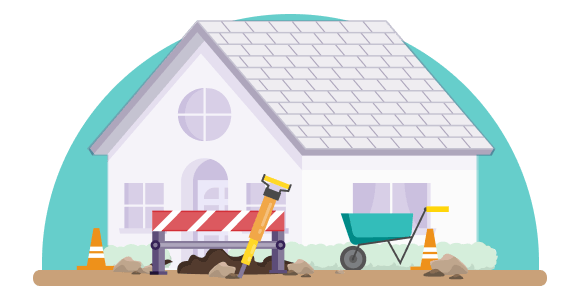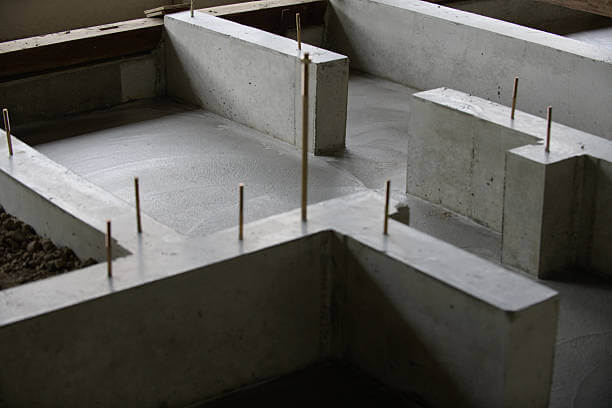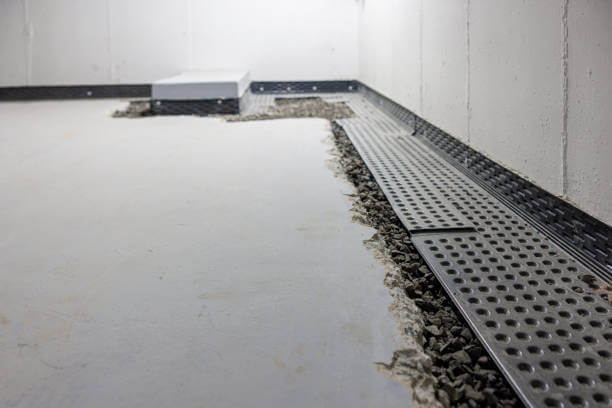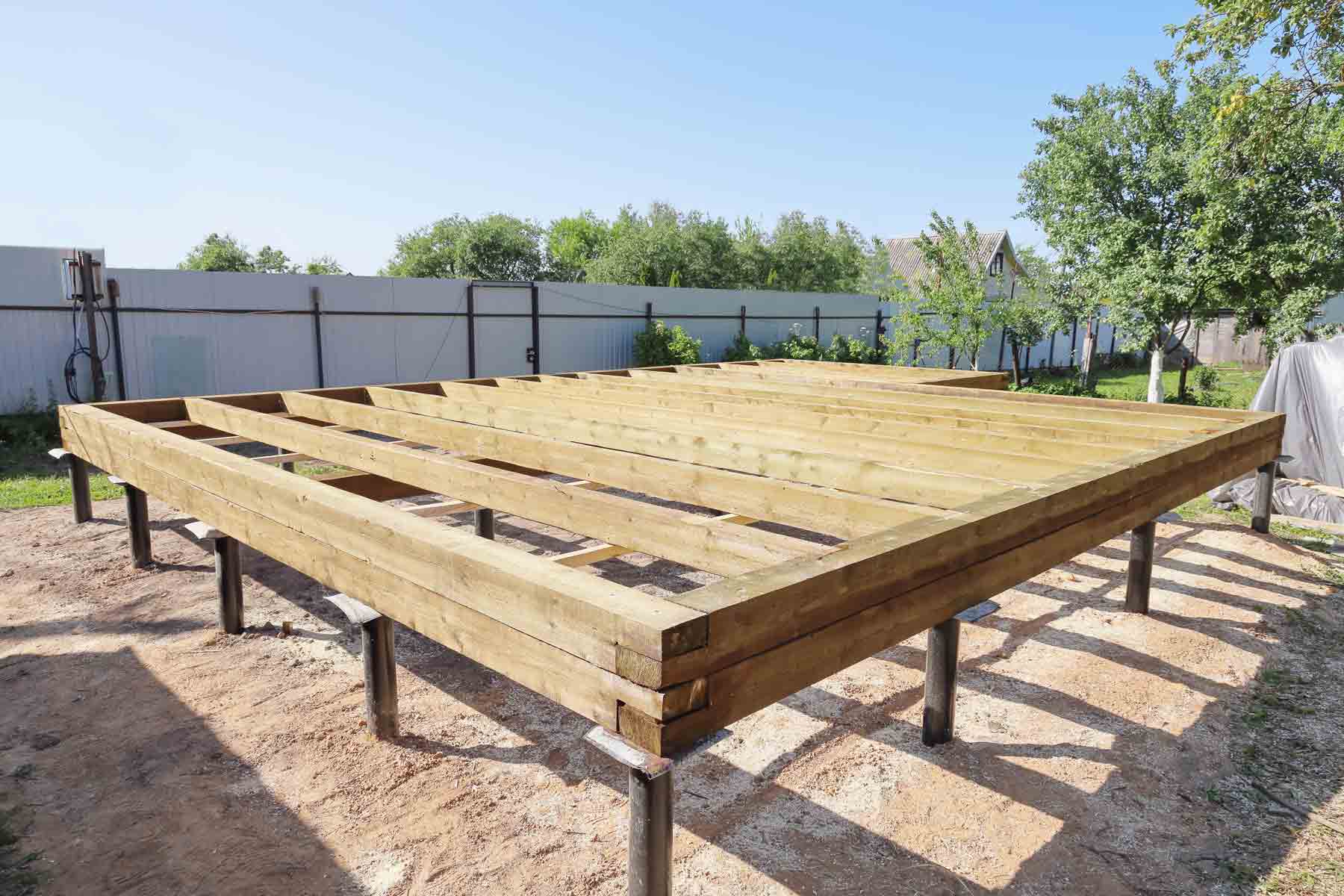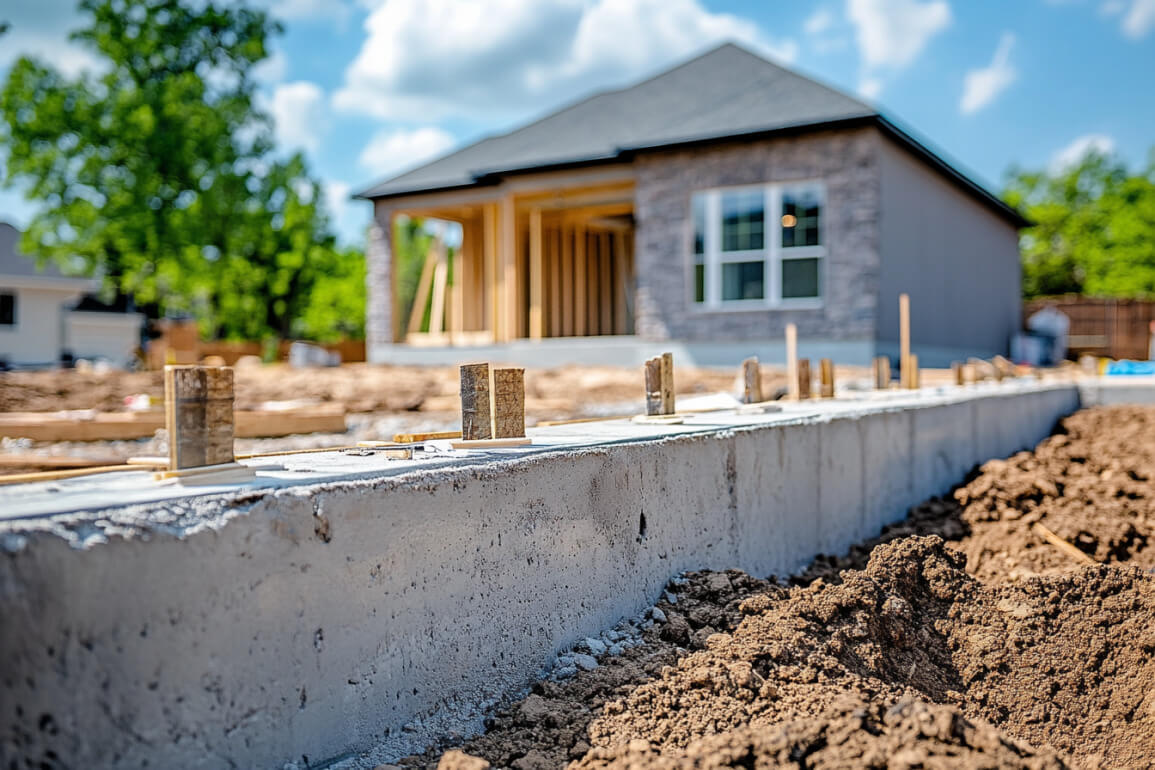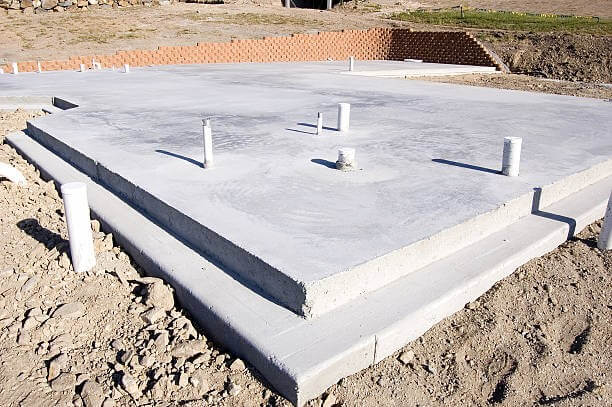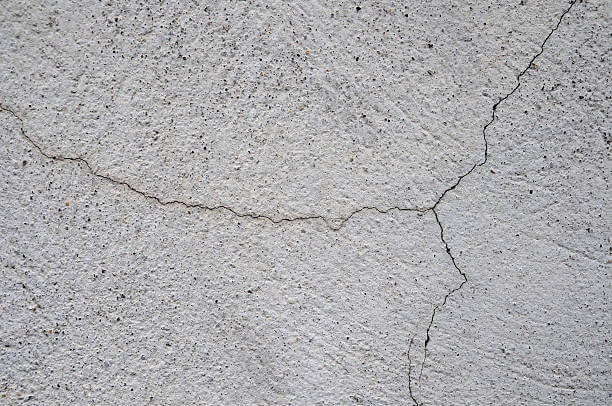When Should You Schedule a Foundation Inspection?
Foundation inspections aren’t just for when you notice cracks. They’re often recommended in these situations:
- Buying or selling a home. Older homes are more likely to have settlement issues or outdated construction methods.
- Planning a renovation. Before adding an extension or second story, confirm your foundation can handle the load.
- Noticing warning signs. Cracks, sticking doors, or sloping floors can indicate underlying structural problems.
- After a natural event. Floods, droughts, and earthquakes can weaken foundations even if no damage is immediately visible.
Early inspections are especially valuable because catching problems now can save you thousands in future repair costs.
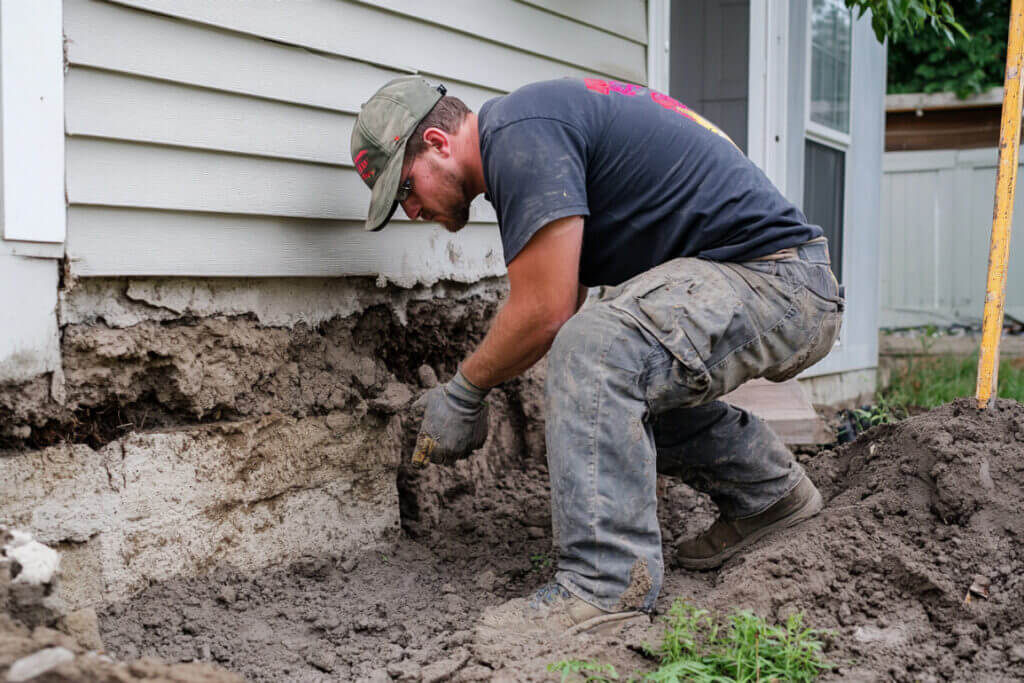
How Much Does a Foundation Inspection Cost In 2026?
The average cost of a foundation inspection in 2026 is $435, with most homeowners paying between $300 and $650. The price depends on your location, home size, foundation type, and whether you need a structural engineer.
Quick Snapshot:
- Visual Inspection ($200 to $300): A walkaround by a contractor, focused on visible cracks or uneven floors. No detailed report.
- Standard Inspection with Report ($400 to $600): A full evaluation of interior and exterior, often with laser levels and moisture readings. Includes written documentation.
- Comprehensive Inspection ($700+): A detailed structural analysis, usually involving a structural engineer. Needed when major issues are suspected, or for permits, insurance, or legal cases.
Foundation Inspection Costs by Region
Foundation inspection prices vary based on soil conditions, climate, and local labor rates. Below are the typical ranges in each U.S. region.
- Southern States ($350 to $550): Expansive clay soils in Texas, Louisiana, and nearby states swell and shrink with moisture, creating ongoing foundation stress. Flood-prone areas may push costs toward the higher end.
- Western States ($450 to $675): Seismic activity in California, Arizona, and Nevada often requires professional inspections after earthquakes or droughts. Engineers are more commonly involved, raising costs.
- Northeast ($500 to $700): Freeze-thaw cycles and an older housing stock drive up inspection costs in New York, Massachusetts, and Pennsylvania. Urban centers like Boston and NYC also see higher labor rates.
- Northwest ($400 to $600): Washington and Oregon homes face heavy rainfall and erosion risks. Foundations on slopes or near tree roots often require more thorough inspections.
- Midwest ($300 to $450): States like Illinois, Ohio, and Michigan often see frost heave and water intrusion in basements. While demand is high, costs remain relatively low compared to other regions.
Foundation Inspection Costs by Home Size
The larger the home, the longer it takes to inspect. Bigger foundations mean more perimeter walls, crawl spaces, and rooms to evaluate.
- Under 1,500 sq. ft. ($300 to $400): Small homes usually cost less to inspect but may still show issues like cracks or uneven floors.
- 1,500 to 2,500 sq. ft. ($400 to $550): Mid-sized homes take more time, especially if crawl spaces or basements are included.
- Over 2,500 sq. ft. ($550 to $750): Large or multi-level homes require the most time, sometimes including attic and subfloor checks.
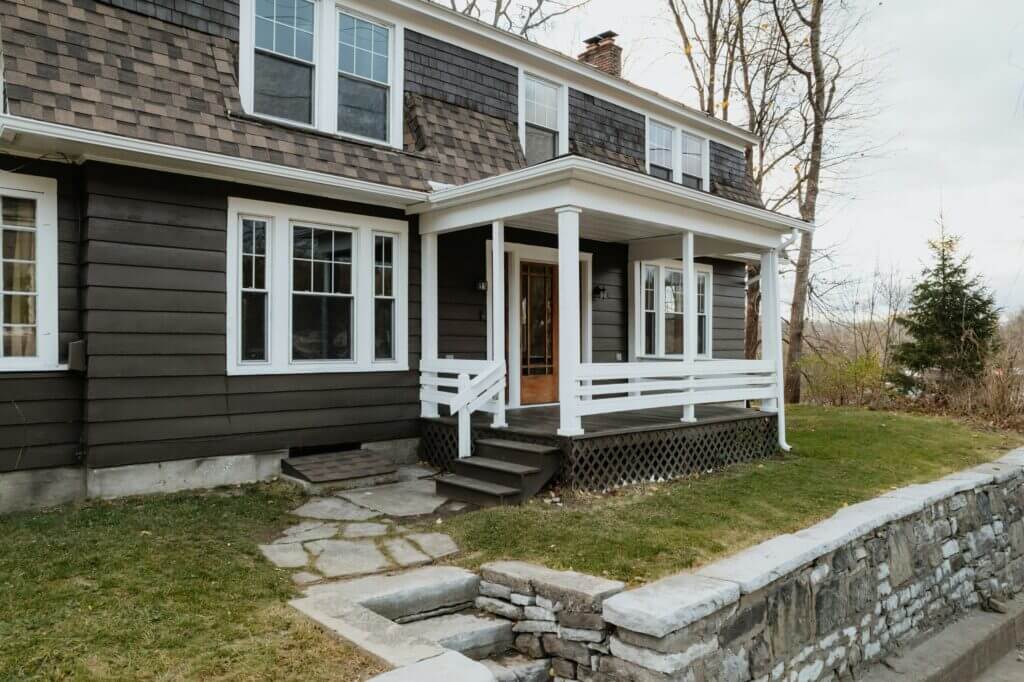
Inspection Cost by Foundation Type
Different types of foundations require different inspection methods because each presents unique challenges in terms of accessibility, structural visibility, and potential problem areas.
Slab Foundations
Slab foundations are the most straightforward to evaluate and typically cost $300 to $500. Since there’s no crawl space or basement, inspectors rely on surface checks for cracks or sloping floors. These inspections are quick but limited.
Crawl Space Foundations
Crawl space foundations typically cost $400 to $600 to inspect. Inspectors need to enter tight spaces to look for moisture, pest damage, or shifting, which can make the process more complicated.
Basement Foundations
Basement foundations typically range from $450 to $650. Inspectors look for bowing walls, water seepage, and settlement issues. Basement inspections are especially common in older homes.
Pier and Beam Foundations
Pier and beam foundations are the most complex to assess, with costs ranging from $500 to $700. Inspectors check each pier, beam, and subfloor system, which takes more time — especially in older homes or those built on shifting soil.
What Factors Impact Foundation Inspection Costs?
Foundation inspection costs vary based on factors like foundation type, accessibility, and the level of damage. Extra tests for moisture or soil, as well as whether you hire a contractor or a structural engineer, can also influence the final price.
- Foundation type and size. Larger homes or those with complicated foundations take more time to inspect and need detailed analysis.
- Accessibility. Homes with tight crawlspaces, few entry points, or obstacles around the foundation take extra time and effort to evaluate.
- Visible signs of damage. If there are cracks, sloping floors, or moisture stains, it may require a closer inspection. This might include extra tests like laser leveling or checking slab movement.
- Moisture or soil testing. These inspections may be needed in areas with drainage problems or expansive soil. While these tests can increase costs, they give important information about what’s happening underground.
- Type of professional required. A licensed contractor may charge less for a basic assessment, but a structural engineer is needed for serious issues. They cost more but provide detailed documentation for permits or legal matters.
Do You Need a Structural Engineer for a Foundation Inspection?
Some inspections need more than a contractor’s walkaround. Hiring a structural engineer provides a detailed, professional diagnosis — but it comes at a higher cost, especially if you need a formal report for permits, insurance, or legal use.
Expect to pay a flat fee between $600 and $900 for an engineering inspection, or $150 to $300 per hour if billed hourly. If you need a formal report for permitting, legal cases, or insurance, costs can rise to $800 to $1,200, depending on the scope.
While more expensive, hiring a structural engineer ensures a detailed diagnosis and carries more authority for documentation purposes. In many cases, their insights are required before repair work can begin or pass inspection.
Can You Inspect Your Foundation Yourself?
Homeowners can do basic visual checks for cracks, sloping floors, or pooling water, but DIY inspections can miss hidden problems. A professional brings tools and expertise that ensure accurate results, especially if you suspect serious issues.
A formal inspection not only gives you peace of mind but also ensures that any next steps — like repairs, permits, or insurance claims — are based on credible, professional findings.
➤ Make sure you’re prepared — learn the early warning signs of foundation issues.
How to Find a Foundation Inspector Near You
Finding a qualified inspector is the best way to get an accurate picture of your home’s foundation health. Here are a few steps to help you choose the right professional:
- Start with licensed pros. Look for home inspectors or structural engineers licensed in your state. Certifications from groups like ASHI (American Society of Home Inspectors) or PE (Professional Engineer) credentials add credibility.
- Check experience. Choose someone with specific experience in foundation inspections, not just general home inspections. Specialized knowledge makes a big difference.
- Read reviews and referrals. Online reviews, recommendations from neighbors, or referrals from trusted contractors can point you toward reliable inspectors.
- Compare quotes. Prices can vary widely, so request two to three estimates. Ask what’s included (written report, measurements, moisture testing) before deciding.
- Use local matching services. Platforms like Modernize allow you to compare local foundation pros, check credentials, and request pricing in one place.
A good inspector won’t just spot current issues — they’ll also explain what’s likely to happen in the future and give you confidence before repairs, renovations, or a home purchase.
➤ See our checklist on how to choose a foundation contractor.
Compare top-rated foundations pros in your area.
Read real homeowner reviews, explore qualifications, and view promotions. Modernize makes it easy to browse professionals and find one that will be perfect for your project.
